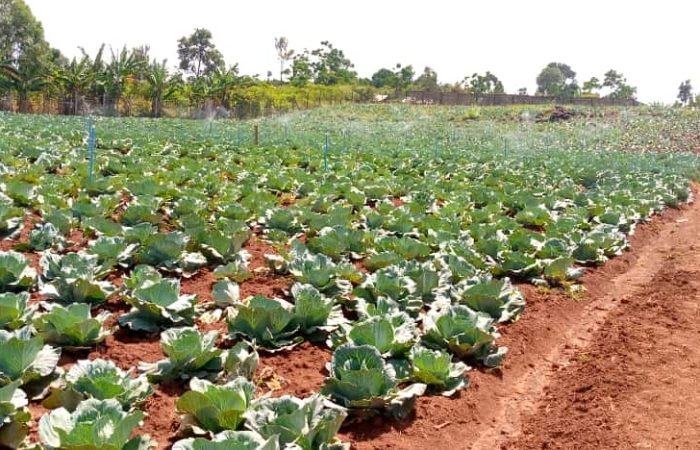Cultivating Hope: Cabbage as a Catalyst for Self-Sustainable Farming in Uganda.
In the lush landscapes of Uganda, a quiet revolution is taking place. Cabbage, a humble vegetable, has emerged as a symbol of hope and self-sustainability for low-income communities nationwide. This blog explores how cabbage farming has transformed lives, empowered individuals, and supported orphan children in the Namayingo District of Uganda communities, fostering economic growth and resilience.
1. The Rise of Cabbage Farming
Cabbage, a member of the Brassica family, has become a staple crop in Ugandan agriculture due to its adaptability to various climates and soils. Small-scale farmers, often from low-income backgrounds, have embraced cabbage cultivation, recognizing its potential to yield consistent and high returns.
- Low-Investment, High-Yield Crop
One of the most appealing aspects of cabbage farming is its relatively low start-up costs. For resource-constrained communities, this opens doors to economic opportunities that were previously out of reach. The affordable seeds, coupled with minimal requirements for land and inputs, make it an ideal crop for those seeking to make a sustainable living.
Nutritional Benefits
Cabbage is rich in essential nutrients, making it a valuable addition to local diets. As more Ugandans have access to fresh, locally grown produce, the prevalence of malnutrition has decreased, fostering a healthier population and reducing healthcare burdens.
Empowering Women and Families
Cabbage farming has empowered women in Uganda by providing them a means to generate income and contribute to their households’ financial stability. As active participants in the agricultural sector, women have gained respect and recognition, leading to increased gender equality within communities.
- Cooperative Farming
To further strengthen their positions, low-income farmers have embraced cooperative farming models. By pooling resources, sharing knowledge, and collectively marketing their produce, farmers can negotiate better prices and expand their customer base, resulting in increased profits.
- Environmental Benefits
Cabbage farming practices in Uganda often lean towards sustainable and organic methods. As a result, it promotes eco-friendly agriculture and reduces the reliance on harmful chemical inputs. By adopting environmentally conscious practices, these communities preserve Uganda’s natural beauty and protect the planet for future generations.
- Market Linkages and Export Opportunities
The growing demand for Ugandan cabbage has opened up market linkages within and abroad. Export opportunities have enabled farmers to access international markets, providing them with higher income potential and bolstering Uganda’s economy.
Skills Development and Education
The success of cabbage farming has encouraged agricultural training and skills development programs for aspiring farmers. These initiatives equip individuals with the knowledge to maximize yields, manage pests sustainably, and implement efficient farming techniques.
Conclusion
Uganda has found a path toward self-sustainability and community empowerment through the humble cabbage. This vibrant vegetable has nourished bodies and nurtured dreams, fostering economic growth, gender equality, and environmental consciousness. As cabbage farming continues to grow, it stands as a testament to the resilience and ingenuity of low-income communities in Uganda. By cultivating hope and prosperity, this agricultural revolution showcases the incredible potential of sustainable farming practices in transforming lives and societies for the better.
Visit our secure online donation portal, where you can make direct donations. All donations in the USA are tax-deductible (Tax ID: 85-0896070).




